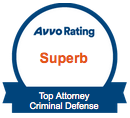A 3-day Action Plan!
A police officer tells you that are under arrest and asks you to place your hands behind your back so they can handcuff you. Or, you get a telephone call from a police officer, requesting that you come into their office to be arrested.
Your initial impression is numbness and shock. Then, the feelings of panic and fear start to build inside of you. Your actions over the next couple of days will have a huge effect on your pending criminal case.
Your first thought, “Holy !!@#$#! I can’t believe this is happening!”
Stay calm. Don’t panic. Now is the time to take hold of yourself, and follow our 3-day action plan.
But first, here are some answers to the following questions going through your mind:
- Does an arrest mean I am definitely going to serve time in jail?
- An arrest is not a guarantee that formal charges will be filing against you. The District Attorney’s Office will review the arrest report, available evidence, and likely witnesses. They may decide the case is not strong enough to move forward with charges.
- Also, you will likely have the ability to post a bond.
- Finally, dismissal of your case is always our goal. But, Plan B is probation. Just because you have been arrested for a felony, is anything but a guarantee that you will go to prison.
- If I am arrested, doesn’t that mean the police are charging me with a crime?
- Only the District Attorney’s Office can charge you with a crime. If it determines that the case is strong enough, it will file formal charges. The arrest in itself is not a formal charge. You will know that you have been charged with a crime when you receive a document called an “Information,” for a misdemeanor, or an “Indictment,” for a felony. That is a document only a district attorney can file and it is a formal notice of charges
- Do I need to hire an attorney right after the arrest?
- It is always a good idea to have an attorney early in your situation. An attorney will keep you from making your situation worse and will be available to negotiate with the prosecutor. Importantly, it is integral to have an attorney at the get go to possibly prevent the formal filing of charges against you. The attorney can present evidence on your behalf with the prosecutor and plead your case. This is not something that you can do on your own.
- Also, many times an arrest can be a form of a “fishing trip” made by police to see if they can get a confession or come across something that can strengthen the case against you. You may say too much and volunteer too much if you are on your own. An attorney will help you guard against accidentally strengthening the State’s case.
- Do I need to post bond?
- Yes. It is much easier to fight your case in the free world. Posting bond will allow you to work to provide for your family and pay your attorney.
- I already have a Court-Appointed Attorney. Can I still hire a private attorney?
- Yes. You can change to a private attorney at any time during your case. But don’t wait until you are a month before trial. At that point, there is not enough time to do the work needed to improve your case. And, many attorneys will not take a case at the last minute.
- Is there a big difference between a private attorney and a court-appointed attorney?
- Yes, there can be. A court-appointed attorney can be a great attorney. However, such attorneys are assigned randomly. Therefore, you may not get a good one.
Your Action Plan for the First Day
- If the police call and tell you that you have a warrant and need to turn yourself in, it is better to comply with this request. Quickly make arrangements. Being on the run can be viewed as consciousness of guilt and thus be used against you at a trial. But, after this, do not cooperate with further police evidentiary requests (do treat the police with respect).
- Do not cooperate with the police. This doesn’t mean that you run and avoid them however. If the police try and question you, tell them up front that you would love to cooperate, but you cannot do so without an attorney.
- If the police are going to arrest you, they are going to arrest you. Talking will only provide more evidence for them and box your attorney in to your statement down the road at trial.
- Do not cooperate with the police. This doesn’t mean that you run and avoid them however. If the police try and question you, tell them up front that you would love to cooperate, but you cannot do so without an attorney.
- If you receive a call to come into the police or sheriff’s office to provide a statement, do not go without an attorney. Again, tell them that you would love to cooperate but you cannot do so until you have an attorney.
- If the police are calling you or you have a warrant for your arrest, you should make sure you are not carrying anything that would look bad if you are searched or would lead to additional charges.
- Don’t start calling friends to discuss what is happening. At this moment in time you will not know who really is your friend and who will testify against you. You would be surprised at how long-time friends choose to make statements to the police about your activities. Your friends are only human and human beings tend to act in their own self-interest. Remember, anything that you say to anybody can be used against you at trial!
- Some obvious advice is to make sure you don’t have any illegal items on your person when arrested or undergoing any interactions with the police.
- Again, if you have the “luxury” to turn yourself in, call a bail bondsman on the way and begin arrangements for bail. A good bondsman can have you out of jail soon after you are processed in. That will make a world of difference in your mindset.
- Don’t talk with the police other than giving your name, and address. Now is the time to remember the 10,000 hours of television you watched where you heard the phrase, “You have the right to remain silent.” You really do! That is your constitutional right.
- The most important thing to do, the second you have contact with a police officer, calmly state that you would like an attorney. That one statement triggers a set of powerful, constitutional protections for you. Once you say the word “attorney” the police must stop questioning you.
- Don’t give the police permission to search anything, don’t sign anything, don’t give names of other people, and do not give consent to access private medical files. It may seem like a way to make the police officer like you, but their job is to efficiently process your arrest and assist in a future conviction.
- Remember, the police are allowed to lie to you for the purpose of obtaining a confession. Don’t assume police cannot lie. And, do not assume they are your friend. Many police officers will pose as a potential friend and ally. They may show empathy towards you or assure you that the charges will never stick. These statements are tools of experienced police officers. They may try to gain your trust for the purpose of making you comfortable. Because, when you are comfortable, you tend to talk about everything.
The Second Day
- You may have spent the night in jail. Continue to remain silent. There is normally a payphone where you can call family or friends collect to seek help getting out.
- Your phones calls from jail are being recorded and will later be used against you. Watch what you say! Only talk about bonding issues. Do not state a thing about your case, period! If you are calling a defendant, remind him that everything being said between him and you is being recorded and thus nothing can be said about the case, period. If you are the defendant, remind your caller at the onset that you cannot talk about your case at all because the call is being taped, period.
- If you have not been bailed out of jail, you will be attending an initial hearing, where a judge may reduce your bail. If so, it does not hurt to directly request a lower bail amount.
- Your goal is to get out of jail today. That will either be through a bail bondsman, an attorney, or a family member that posts the full amount of the bond. Most bail bondsmen will require a cash payment of 10% of the bail amount, and some sort of collateral that is worth the other 90%.
- If you get bonded out of jail, now is the time to start thinking about finances. Review your credit cards and other sources of credit.
- Go into conservation mode. Don’t spend money on unnecessary purchases.
- Build a financial war chest that can tide you over until things calm down. If you can, stash away money you may need to live on. Pay minimum payments on your debt and keep more money in your pocket. Apply for several new credit cards.
- Call the Law Office of Case J. Darwin and set up an appointment to discuss your situation.
The Third Day
- Hopefully you have not discussed your case with anyone but your attorney. Continue your silence. Go about your daily business. And, don’t get into further trouble.
- Don’t call the victim or potential witnesses. This will quickly land you back in jail. It may also come back to haunt you in court. You would be surprised at how many people call the victim. More often than not there will be a “no contact” order in place that makes it illegal for you to contact the victim. For our purposes, the “victim” can be a person or a business.
- If the pending charge is really serious, start to think of a plan B for your children. At this moment in time, you don’t want to be worried about keeping your family together.
- If you are potentially in a divorce or custody dispute, immediately get a consult with a divorce attorney. A criminal charge will radically affect your situation, and you need to do some planning.
- Find out how to look up your case progress online. The majority of court records are public record and are available online. This will help you ensure you do not miss any hearings.
- Most criminal cases involve a lot of time, and a lot of waiting. Cooperate with your attorney and don’t get in any more trouble.
- Stop hanging out with any friends with a track record of trouble. Don’t fall into despair. All stressful events eventually pass. Arrests are very stressful. You may feel like your life is coming apart. But, the vast majority of people survive the situation and eventually regain happiness.
Every Day After
- Stay on top of your situation. Just because you made a good start is not an excuse to stick your head in the sand. Keep looking at the court docket. Check your mail every day. And, make sure to inform the clerk of court if you have changed your address.
- Always inform your attorney if your telephone number changes.
- Always know your court date. It is ultimately your responsibility to know your court date, not your attorney’s responsibility. If you fail to appear to court on a felony, you will have just committed the third-degree felony offense of bailjumping, which is punishable by 2 to 10 years in the penitentiary. See Tex. Pen. Code Ann. § 38.10 (West 2019). Comal County, Guadalupe County, and Hays County routinely file these cases cases against a defendant who fails to show up at court for a felony.
- Do not commit any new crime.
- Ensure that you arrive to your court setting timely. Plan for a train. A judge could revoke your bond based on mere tardiness to arriving at court.
- Start making plans for your new life. Yes—it will happen. Now is the time to visualize your positive new future.
- Go to the gym, eat well, and don’t drink in excess. Now is not the time to let yourself go physically. And, don’t numb yourself with drugs and alcohol. That can only make your situation worse.
- 100% quit drugs. A judge could order that you be tested for drugs in court. If you come back positive, your bond will likely be revoked.
Above all – be positive! The whole thing will eventually become a distant memory. In the future, you will probably look back on this period of time and realize that you overstressed.
Call the Law Office of Case J. Darwin!




